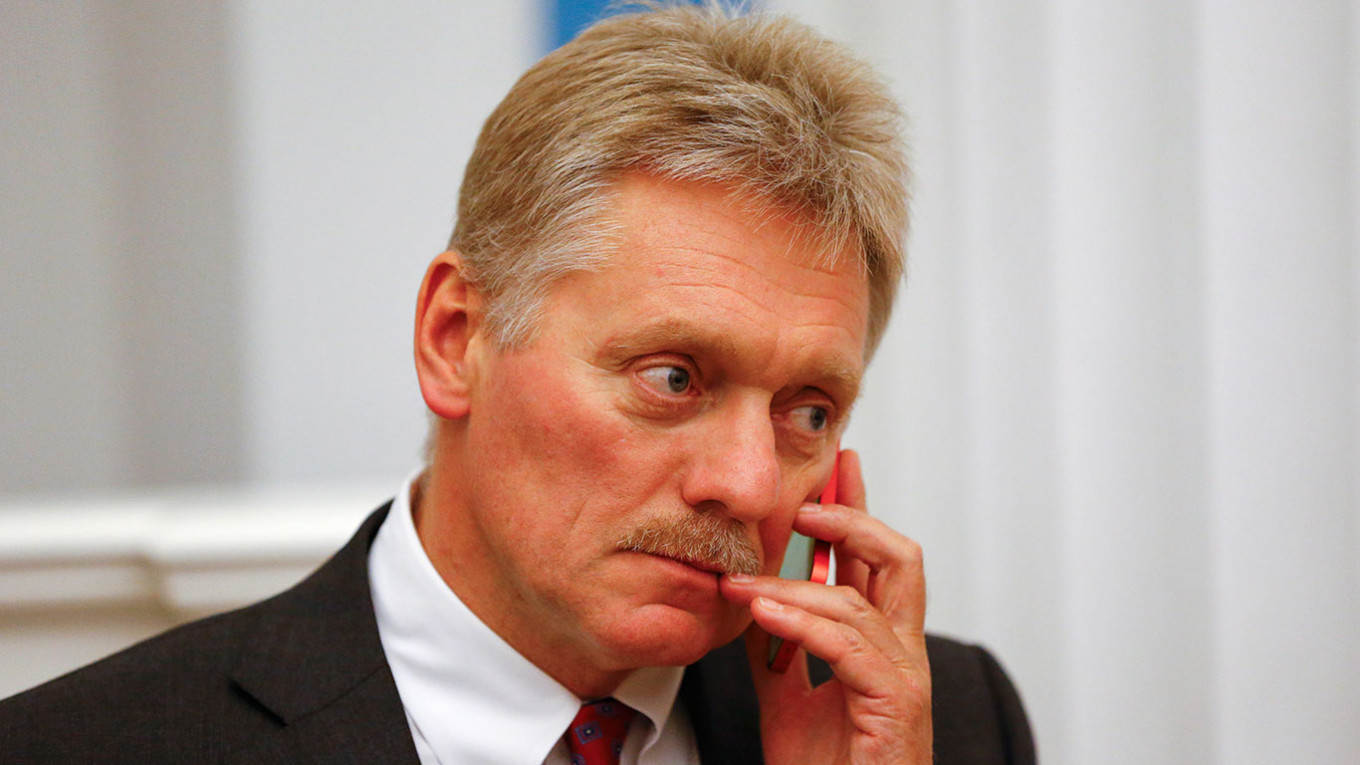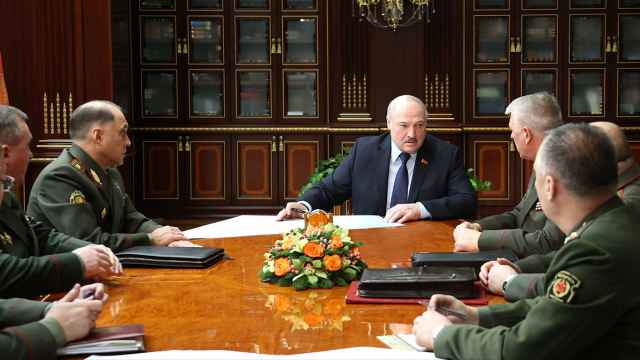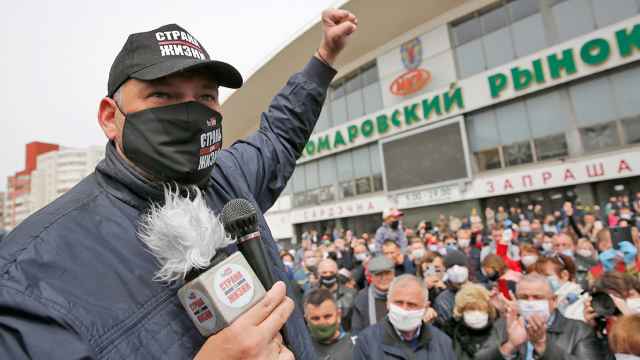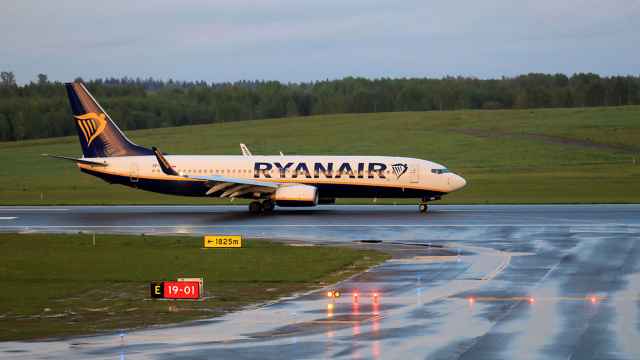The Kremlin said Thursday that Europe should not blame Russia for "all problems," as tensions with the West simmer over Ukraine and the migrant crisis on the Belarus-Poland border.
"Russia has an interest in everybody in Europe finally coming to their senses and stopping considering Russia the culprit of all problems," Kremlin spokesman Dmitry Peskov told reporters.
He added that Europe should instead "address the primary sources of the problems that are currently suffocating Europe."
His remarks come after British Prime Minister Boris Johnson on Wednesday warned Russia against any "military adventurism" on the borders of Ukraine and EU member Poland.
"Recently there have been a lot of hysterical publications in Britain," Peskov said.
"Russia is not waging any hybrid wars," he added.
Later on Thursday, Russian President Vladimir Putin is expected to address a Foreign Ministry meeting with "detailed" remarks, Peskov said.
NATO and Western governments have denounced a build-up of Russian troops on the border with Ukraine, which has been fighting a war with pro-Russia separatists in its east since 2014.
Russia had carried out large-scale drills near the Ukraine border and in annexed Crimea in the spring, sparking concerns of a possible invasion.
Kiev, which in recent weeks downplayed the scale of Russia's presence at its borders, said Thursday it was seeking more military aid from the West.
Videos circulated recently on social media have shown Russia moving troops, tanks and missiles towards the Ukrainian border.
"Russia's aggressiveness, both diplomatic and military, has increased considerably in recent weeks," Ukraine's Foreign Minister Dmytro Kuleba told a press briefing.
Ukraine seeks more Western arms
The minister said that after his visits to Washington and Brussels "work is underway to develop a comprehensive package for the containment of Russia."
He added that Kiev is in negotiations with the West for "the supply of additional defense weapons for our army."
Moscow, in turn, has accused Kiev and the West of warmongering.
In a call with French President Emmanuel Macron on Monday, Putin said U.S.-led exercises in the Black Sea were "provocative" and were "increasing tensions" between Moscow and NATO.
According to the Elysee, Macron told Putin that France was ready to defend Ukraine's territorial integrity.
Some Western governments have also accused Moscow of helping orchestrate the migrant crisis on the Belarus-Poland border.
Several thousand migrants — mostly from the Middle East — have been staying in makeshift camps on the border in hopes of entering the EU.
Brussels has accused Belarusian President Alexander Lukashenko of luring the migrants to the border as revenge for sanctions against his regime over last year's crackdown on protests.
Lukashenko and the Kremlin have rejected the accusations and criticized the EU for not taking in the migrants.
The Belarusian strongman has twice spoken by telephone this week with German Chancellor Angela Merkel in his first direct contacts with a Western leader since last year's disputed presidential election.
The Kremlin — Lukashenko's main political and financial backer — has welcomed "direct" contacts between Belarus and EU officials.
A Message from The Moscow Times:
Dear readers,
We are facing unprecedented challenges. Russia's Prosecutor General's Office has designated The Moscow Times as an "undesirable" organization, criminalizing our work and putting our staff at risk of prosecution. This follows our earlier unjust labeling as a "foreign agent."
These actions are direct attempts to silence independent journalism in Russia. The authorities claim our work "discredits the decisions of the Russian leadership." We see things differently: we strive to provide accurate, unbiased reporting on Russia.
We, the journalists of The Moscow Times, refuse to be silenced. But to continue our work, we need your help.
Your support, no matter how small, makes a world of difference. If you can, please support us monthly starting from just $2. It's quick to set up, and every contribution makes a significant impact.
By supporting The Moscow Times, you're defending open, independent journalism in the face of repression. Thank you for standing with us.
Remind me later.






